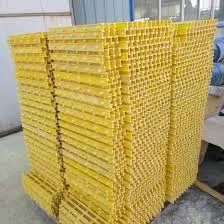
-
 Afrikaans
Afrikaans -
 Albanian
Albanian -
 Amharic
Amharic -
 Arabic
Arabic -
 Armenian
Armenian -
 Azerbaijani
Azerbaijani -
 Basque
Basque -
 Belarusian
Belarusian -
 Bengali
Bengali -
 Bosnian
Bosnian -
 Bulgarian
Bulgarian -
 Catalan
Catalan -
 Cebuano
Cebuano -
 China
China -
 China (Taiwan)
China (Taiwan) -
 Corsican
Corsican -
 Croatian
Croatian -
 Czech
Czech -
 Danish
Danish -
 Dutch
Dutch -
 English
English -
 Esperanto
Esperanto -
 Estonian
Estonian -
 Finnish
Finnish -
 French
French -
 Frisian
Frisian -
 Galician
Galician -
 Georgian
Georgian -
 German
German -
 Greek
Greek -
 Gujarati
Gujarati -
 Haitian Creole
Haitian Creole -
 hausa
hausa -
 hawaiian
hawaiian -
 Hebrew
Hebrew -
 Hindi
Hindi -
 Miao
Miao -
 Hungarian
Hungarian -
 Icelandic
Icelandic -
 igbo
igbo -
 Indonesian
Indonesian -
 irish
irish -
 Italian
Italian -
 Japanese
Japanese -
 Javanese
Javanese -
 Kannada
Kannada -
 kazakh
kazakh -
 Khmer
Khmer -
 Rwandese
Rwandese -
 Korean
Korean -
 Kurdish
Kurdish -
 Kyrgyz
Kyrgyz -
 Lao
Lao -
 Latin
Latin -
 Latvian
Latvian -
 Lithuanian
Lithuanian -
 Luxembourgish
Luxembourgish -
 Macedonian
Macedonian -
 Malgashi
Malgashi -
 Malay
Malay -
 Malayalam
Malayalam -
 Maltese
Maltese -
 Maori
Maori -
 Marathi
Marathi -
 Mongolian
Mongolian -
 Myanmar
Myanmar -
 Nepali
Nepali -
 Norwegian
Norwegian -
 Norwegian
Norwegian -
 Occitan
Occitan -
 Pashto
Pashto -
 Persian
Persian -
 Polish
Polish -
 Portuguese
Portuguese -
 Punjabi
Punjabi -
 Romanian
Romanian -
 Russian
Russian -
 Samoan
Samoan -
 Scottish Gaelic
Scottish Gaelic -
 Serbian
Serbian -
 Sesotho
Sesotho -
 Shona
Shona -
 Sindhi
Sindhi -
 Sinhala
Sinhala -
 Slovak
Slovak -
 Slovenian
Slovenian -
 Somali
Somali -
 Spanish
Spanish -
 Sundanese
Sundanese -
 Swahili
Swahili -
 Swedish
Swedish -
 Tagalog
Tagalog -
 Tajik
Tajik -
 Tamil
Tamil -
 Tatar
Tatar -
 Telugu
Telugu -
 Thai
Thai -
 Turkish
Turkish -
 Turkmen
Turkmen -
 Ukrainian
Ukrainian -
 Urdu
Urdu -
 Uighur
Uighur -
 Uzbek
Uzbek -
 Vietnamese
Vietnamese -
 Welsh
Welsh -
 Bantu
Bantu -
 Yiddish
Yiddish -
 Yoruba
Yoruba -
 Zulu
Zulu
frp desalination piping and fitting
FRP Desalination Piping and Fittings A Game Changer in Water Treatment
In an era where freshwater scarcity poses a critical challenge to global sustainability, desalination has emerged as a key technology to convert seawater into potable water. A crucial component of desalination systems is the piping and fitting used to transport seawater and produced fresh water. Among the various materials employed, Fiber-Reinforced Plastic (FRP) has gained prominence for its outstanding properties and advantages over conventional materials.
FRP, composed of a polymer matrix reinforced with fibers—commonly glass or carbon—exhibits exceptional resistance to corrosion, making it an ideal choice for marine applications. In a desalination context, FRP piping systems demonstrate outstanding durability even when exposed to salty water and harsh environments. Traditional metal piping is often susceptible to corrosion, leading to expensive repairs and replacements. In contrast, FRP's anti-corrosive properties ensure a longer lifecycle, significantly reducing maintenance costs.
Another notable advantage of FRP piping in desalination is its lightweight nature. FRP pipes are substantially lighter than their metal counterparts, which facilitates easier installation and transportation. This is especially beneficial in remote or offshore locations where heavy machinery may not be readily available. Moreover, the ease of installation can contribute to reduced labor costs and quicker project completion timelines.
frp desalination piping and fitting

The thermal insulation properties of FRP are also advantageous in desalination plants. Unlike metal pipes, which can conduct heat, FRP offers better thermal resistance, minimizing heat loss from the transporting brine and fresh water. This thermal efficiency helps in maintaining optimal operating temperatures, which is critical for the performance of desalination systems.
Moreover, FRP can be manufactured in a variety of shapes and sizes, allowing for customized piping solutions that fit the specific needs of desalination facilities. It can accommodate various diameters and pressure ratings, making it versatile for different system designs. The ability to create complex fittings and junctions further enhances its applicability in intricate piping networks.
In addition to technical benefits, the environmental impact of using FRP is often lower than that of conventional materials. Many FRP products are designed to be more energy-efficient and can be produced from sustainable resources, aligning with the green initiatives that many desalination plants aim to achieve.
In conclusion, FRP piping and fittings represent a transformative advancement in the field of desalination. Their unique properties, including corrosion resistance, lightweight design, thermal insulation, customization options, and reduced environmental impact, make them an ideal choice for modern water treatment systems. As the world continues to seek innovative solutions for freshwater shortages, FRP technology will undoubtedly play a vital role in addressing these pressing challenges.
Latest news
-
Exploring the Benefits of Top Hammer Drifter Rods for Enhanced Drilling PerformanceNewsJun.10,2025
-
High-Precision Fiberglass Winding Machine for GRP/FRP Pipe Production – Reliable & Efficient SolutionsNewsJun.10,2025
-
FRP Pipes & Fittings for Shipbuilding - Corrosion-Resistant & LightweightNewsJun.09,2025
-
Premium FRP Flooring Solutions Durable & Slip-ResistantNewsJun.09,2025
-
Premium Fiberglass Rectangular Tanks Durable & Lightweight SolutionNewsJun.09,2025
-
Tapered Drill String Design Guide Durable Performance & UsesNewsJun.09,2025









